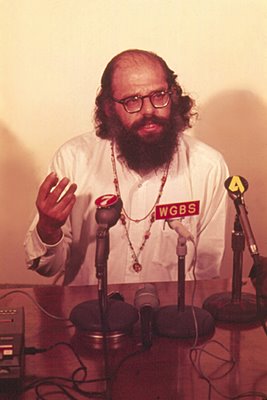And The Beat Goes On

It was my dad's generation, really, that gave me my real heros, those guys who'd come of age through The Great Depression and fought in the Big One, the last justifiable war, the global conflagration where the good guys were called The Allies and the bad guys were The Axis. "Cobelligerants" we called them. Had our side been defeated I suppose that would have been looked upon as just the primary. Would the Germans then have then duked it out with the Japanese?
My dad had been a bit of a maverick in his day, spent a couple years in art school in Boston, but then settled down in the family clothing store in New Bedford, got married, got his wife pregnant, and joined the Army Air Corps. He learned to fly a B-29 but suffered from atltitude sickness in those days of unpressurized planes. He made sergeant and spent time in Calcutta and Bombay, India before ending up on the island of Tinian in the Mariannas, the base that saw most of the bombing raids on Japan originate. Both atomic bombs took off from there. His job was issuing the fuses that were installed in the bombs before the planes took off. I always had the feeling that his pride in issuing those two fuses was mixed with more than a little guilt about the devastation and all the lives that were lost.
Those guys fighting the war weren't my heros, not the ones I was referring to anyway. In my teens I discovered some writers of his generation. I devoured the writings of Borroughs, Kerouac, and Ginsberg. Jack Kerouac was a fellow son of Massachusettes, growing up in a mill town not unlike my hometown of New Bedford, and I could relate to that. Allen spelled his name differently than I did but he was also Jewish, so it was easy to make a connection. It wasn't until I'd read Howl, On the Road, The Town And The City, and The Dahrma Bums, and was starting to explore the philosophy of Zen Buddism, that it hit me - these super hip heros of mine were the same generation as my dad!
He and I had many late night conversations. He too read those books at my urging, but he was too much a product of middle class upbringing and the needs of his family to fully embrace the new outlook. I wasn't.
Eight or ten years later, living in Miami, I was working for The Daily Planet, an underground newspaper. Today we call them "counterculture" papers. Ginsberg was in town to give a lecture, or maybe it was a poetry reading. I don't remember. He'd become a very out spoken and respected personage. There was a press conference in the newspaper's office. That was back in the days when TV meant shooting film. I loved it. The TV guys always lit for 1/125 at f/8 if I was shooting Tri-X because that was the same as High Speed Ektachrome Type B (tungsten balance) with 1/50 atf /5.6.
I had no real reason to shoot some color that day. We ran only B&W in the paper. I guess I thought "Maybe for stock". Who knows. I shot both. I had a 50mm f/1.4 Nikkor on my Leica M4. Over the years the color has shifted a bit, gotten a little warmer, but it's still believeable.

0 Comments:
Post a Comment
<< Home